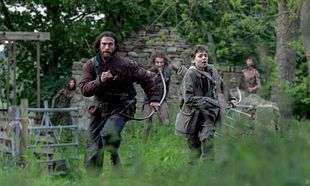He had a plan. If he kept his face covered up and said as little as possible, it might instil doubt in their minds. And if they doubted, then he had a chance. And if he had a chance he knew he could pull it off.
In 1994 13-year-old blonde-haired, blue-eyed Nicholas Barclay disappears from his neighbourhood in San Antonio, Texas. Three years later, the police in Spain receive a phone call from a man saying they've found a kid, around fifteen or sixteen, in a phone box. The kid isn't saying anything but he looks scared. The police pick him up and he's taken to a children's home where the authorities finally get him to speak: after seeing pictures of missing kids, the teen claims to be Nicholas Barclay from Texas - but this kid has dark hair, dark eyes and speaks with a French accent. The Barclays are so overwhelmed with relief, however, they're willing to overlook these minor inconsistencies. They take him home but soon suspect what everyone already knows: this guy is not Nicholas.
The Imposter follows similar lines to Man On Wire: a fantastic story brought to life by tense recreations narrated by the perpetrators. The main perpetrator, Frederic Bourdin, sits in front of the camera and candidly tells us his exploits. Director Bart Layton interviews all concerned - Nicholas' family members and a local private investigator who was the first to cotton on - but he only keeps the camera tight on Bourdin. Maybe Layton is searching for remorse in Bourdin's face but he finds only excitement when he regales us with what went down in those five months in Texas. This wasn't the only time Bourdin tried something like this and was known as 'The Chameleon' in Europe.
Although veering close to Banged Up Abroad* (it's no surprise to find that Layton is a producer of the show), the recreations make for tense viewing: one particular scene has a suspicious Spanish authority ask Bourdin (played by a sullen Adam O'Brian) to identify the people in family pictures sister Carey has brought from Texas. Bourdin bluffs his way through this moment, and many more like them with Layton keeping the pressure on throughout – every scene is a scene where Bourdin could be found out.
But with all this going on, what about the real Nicholas? Layton knows that this is in the back of the audience's mind and leaves it until late on to explore something that's altogether darker...
One of the documentaries of the year,
*For the record, Banged Up Abroad is a guilty pleasure of mine but it's very much TV and has no place in the cinema.








































































